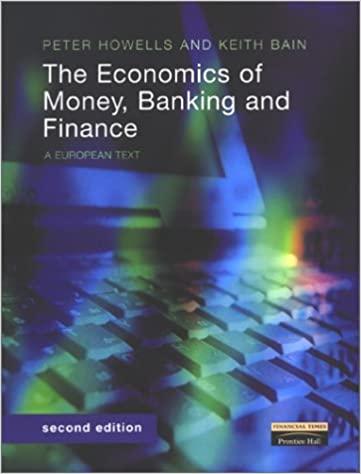Answered step by step
Verified Expert Solution
Question
1 Approved Answer
Borrower Profile Steve is graduating in May from graduate school and has the following loans: Loan Type Loan Amount Disbursement Date Interest Rate Direct Subsidized
Borrower Profile Steve is graduating in May from graduate school and has the following loans:
Loan Type Loan Amount Disbursement Date Interest Rate
Direct Subsidized Loan $ Jan
Direct Unsubsidized Loan $ May
Direct Subsidized Loan $ May
Direct Unsubsidized Loan $ Aug
Direct Subsidized Loan $ Aug
Direct Unsubsidized Loan $ Oct
Direct Unsubsidized Loan $ Jul
Direct Unsubsidized Loan $ Sep
Direct Unsubsidized Loan $ Jun
Steve earns $ per year, and earns a performance bonus that is roughly of his annual income. Steve is married, and has two children. Steves wife earns $ per year. They file their taxes jointly, and his wife has an Unsubsidized Consolidation loan in the amount of $ at a interest rate. They do not make any adjustments to their gross income.
What is the Calder familys adjusted gross income?
Using the repayment estimator at StudentLoans.gov, input Steves loan and household information and insert a screen shot of
the results generated.
Resource: https:studentloansgovmyDirectLoanmobilerepaymentrepaymentEstimatoraction
Which of the plans is likely the best choice for repayment? Why?
What criteria would make Steve eligible for Public Service Loan Forgiveness? Describe IN DETAIL what each of these criteria
mean.
If Steve chose the IBR or PAYE plan, how many months would be forgiven?
If Steve chose ICR, how many months would be forgiven?
Which of the three incomedriven plans would you recommend Steve to use if his goal was to keep his monthly payment as low
as possible until his loans would be forgiven under PSLF and why?
What are the tax consequences applied to the forgiven balance of outstanding loan amounts under PSLF
What is a debttoincome ratio?
Steves spouse has a monthly student loan payment of $ Steve and his wife have no other debts, except for their
mortgage which is $month principal interest, tax, and insurance included If Steve selects Standard Repayment, what is
their debttoincome ratio? What is the significance of the result? Show your work
Keeping all information in question the same, add two car payments of $each What is the Calders new debtto
income ratio? What is the significance of the result? Show your work
Using the information in question if Steves wife were to lose her job, what would happen to their debttoincome ratio?
What is the significance of the result? What would happen if they had car payments as suggested in question Why is that
significant? Show your work
FIN PERSONAL FINANCE Student Loan Repayment Case Study
Assuming Steves wife lost her job, in regard to her student loans and paying them, what options does she have while she is
looking for a way to replace her income?
Why is this not the best strategy, given their debttoincome ratio, even after the loss of one income?
While their student loan payments are high for the repayment period of years, so are their salaries. If their salaries are
expected to grow at annually over the next years, and their student loans are paid off in years, what is the Calders
expected debttoincome ratio, assuming they have the same mortgage payment and no other debt payments? What is the
significance? Show your Time Value of Money Inputs and your DTI calculation
When are large student loan balances not necessarily a bad thing?
If you take out too much debt, and dont make a ton of money, how does that influence your debttoincome ratio?
If you have a high debttoincome ratio, what financial milestones or goals might you not be able to reach?
Why is it important to make good career choices and keep your consumer debt inline with those choices?
In reality, gross income is not necessarily the best measure of income because it is income before taxes. In the Calders
situation, their net income aftertax is about $month instead of $month After their mortgage and student
loan payments are made, theres about $ left over. What do you think about this and how would you suggest they manage
money thats left after paying their debts?
Step by Step Solution
There are 3 Steps involved in it
Step: 1

Get Instant Access to Expert-Tailored Solutions
See step-by-step solutions with expert insights and AI powered tools for academic success
Step: 2

Step: 3

Ace Your Homework with AI
Get the answers you need in no time with our AI-driven, step-by-step assistance
Get Started


